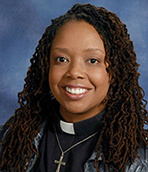by Angela T. Khabeb
My 7-year-old daughter, Khonni, came to me the other day and asked, “Mommy, how many people do not have the coronavirus?” I thought for a moment then answered, “Nobody knows for sure, baby. But I’m sure it’s billions.”
The importance of herd immunity notwithstanding, her question helped shift my perspective albeit briefly. Lately, during this health crisis, I’ve been watching the news daily. I’m sure Khonni has routinely noticed the banner on the right of the screen that displays the COVID-19 infection rate and death toll. Every morning, I just have to know the totals. Why? Perhaps you’re like me and you also yearn for knowledge to help make sense in the struggle to understand this pandemic. Imagine what it must be like in the mind of a child. Khonni’s question offered a much-needed distraction from the gruesome coronavirus news. We made time to celebrate the many people throughout the world who are healthy and flourishing. We rejoiced over the hundreds of thousands of people who have recovered from the virus.
Hope, however fleeting, is all the more precious.
 We are living through perplexing times. Fear and uncertainty hover around us. Simple things like toilet paper and hand sanitizer are in short supply. Unemployment rates are rising at rocket speed. Mortgage, rent, and utilities still need to be paid. Small businesses are on life support. Essential workers place their lives in jeopardy for the sake of strangers. Meanwhile, the death toll in our country is beyond our fatalities during The Vietnam War. Black and brown people are dying at a staggeringly disproportionate rate.
We are living through perplexing times. Fear and uncertainty hover around us. Simple things like toilet paper and hand sanitizer are in short supply. Unemployment rates are rising at rocket speed. Mortgage, rent, and utilities still need to be paid. Small businesses are on life support. Essential workers place their lives in jeopardy for the sake of strangers. Meanwhile, the death toll in our country is beyond our fatalities during The Vietnam War. Black and brown people are dying at a staggeringly disproportionate rate.
Living in what seems like a constant state of confusion tears at the fabric of my sanity. I’m not a stranger to ambiguity, but this is different. Initially, we were advised not to wear masks. Now we are strongly encouraged to wear them in public. In fact, some local municipalities may impose fines if masks are not worn. I find myself in a steady search for clear answers.
For example, if you have COVID-19, and recover, are you immune? If so, for how long? Can a mother give the virus to a baby in utero? How long will we shelter-in-place? Will our children go back to school in the fall? Can we give the virus to our pets? Can our pets give it to us? Will we ever be “back to normal?”
The multi-layered ramifications of this pandemic are overwhelming. It’s no wonder that many of us are confused. Yet, our confusion needs no apology. Recently, I stumbled upon a quote from Janet Jackson from her book, True You. “To be given permission to be confused — and remain confused — for as long as it takes would have been a huge gift.” (p. 487)
Throughout life, we are surrounded by uncertainty, skepticism, and fear. Doubt is healthy and in times of confusion, the Holy Spirit invites us to center ourselves in our faith.
Years ago, while in seminary, one of my professors, Dr. Monica Coleman, challenged us to discover our “kernel of truth,” or the core essence of our faith. Our theological kernel of truth is what remains after we have peeled back all the layers of life experience, social location, and theological training. Admittedly, these core values may take a different shape in different contexts. My kernel of truth is that we serve a God who is intimately and infinitely concerned with each and every one of us. In times like this, when there is so much that we do not know, our theological kernel of truth can help anchor us in our faith.
 My kernel of truth rest on Romans 8:38-39. Paul proclaims, “For I am convinced that neither death, nor life, nor angels, nor rulers, nor things present, nor things to come, nor powers, nor height, nor depth, nor anything else in all creation, will be able to separate us from the love of God in Christ Jesus our Lord.” During this time of social distancing, financial uncertainty, and conflicting information, we know God’s love is constant.
My kernel of truth rest on Romans 8:38-39. Paul proclaims, “For I am convinced that neither death, nor life, nor angels, nor rulers, nor things present, nor things to come, nor powers, nor height, nor depth, nor anything else in all creation, will be able to separate us from the love of God in Christ Jesus our Lord.” During this time of social distancing, financial uncertainty, and conflicting information, we know God’s love is constant.
The word “love” is probably one of the most overused words in the English language. We love everything! We love chocolate cake; we love football; we love our parents or children; and, of course, we love God.
Love is the center of countless movies, novels, and songs. We use the word so much that it has almost lost its true meaning. Many of us are familiar with the song “Jesus Loves Me This I Know.” As children, we did not fully understand the importance or the need for God’s love. But now that we’re older, we know life is unpredictable. We also know that God’s love abounds.
I’m not sure what is in store for us tomorrow or next week or next year. [ Editor’s Note: This article was written before the murder of George Floyd by police in Minneapolis, Minn., May 25, 2020.] But I do know that nothing can separate us from the love of God that is in Christ Jesus! Nothing–not life or death. Not angels or demons! Not the present or the future. Not height nor depth nor anything in all of creation–nothing can separate us from God’s love! Not financial turmoil, not social distancing, not COVID-19, not rampant racism, not suffering or sickness, successes or failures. This one thing I know for sure, nothing can separate from the love of God that is in Christ Jesus!
Discussion questions:
1. What gives you hope during this pandemic?
2. How are you practicing self-care?
3. What is your kernel of truth- after, everything else fades away, what do you know about your faith? What do you know about God?
Closing prayer:
Ever-present God, thank you for your relentless love for us. Continue to open our understanding so that we see the activity of your Spirit moving in our lives. Grant us hope when we are afraid, peace when we are anxious, and wholeness where we are broken. In Jesus’ name. Amen.
 The Rev. Angela T. Khabeb serves Holy Trinity Lutheran Church in Minneapolis. She enjoys an active home life with her amazing husband, Benhi, and their three wonderful children Konami, Khenna and Khonni.
The Rev. Angela T. Khabeb serves Holy Trinity Lutheran Church in Minneapolis. She enjoys an active home life with her amazing husband, Benhi, and their three wonderful children Konami, Khenna and Khonni.


Thank you for this faithful testimony.
Your words are what I needed this morning. It is a different focus with the protests and marches but still appropriate. These are troubled and crazy times with much confusion and potential conflict. My prayers are that we don’t rush for solutions that sound good with no substance behind them. To often there is a rapid response to crisis without regard to the long term effect of those interventions. May we remember that we are all His children first and maybe then we will truly be able to treat one another and siblings in this world!
Beautiful words of hope and truth!
Thank you, Pastor Angela, for reminding me that hope is our “go to” in all this turmoil. I will pass this on to those in my circle of sisters in Christ.
You have used my favorite scripture and made this devotion so meaningful tonight! Thank you. God loves us all!
How timely for me today. I know you wrote this before the tragic death of George Floyd yet this morning I felt called to return to prayer for those on the front line of health care. I have followed the messages you have given and whenever I see your name I forward them to others. Thank you and bless your continued ministry at Holy Trinity and to the world.
I have always loved your writings. This has clearly helped me to feel the love of Christ in my life. I have lately been totally losing it. But your words have brought me back. We will make it through the virus and turmoil in the world. And I can see tiny acts of kindness around the world where God is there. Love will continue to grow and will win. Love reading your articles. God loves all his children.
Pastor Angela, your words and those comforting words from Romans have strengthened me this morning. Thanks for your words of hope as we learn to deal with so much uncertainty.